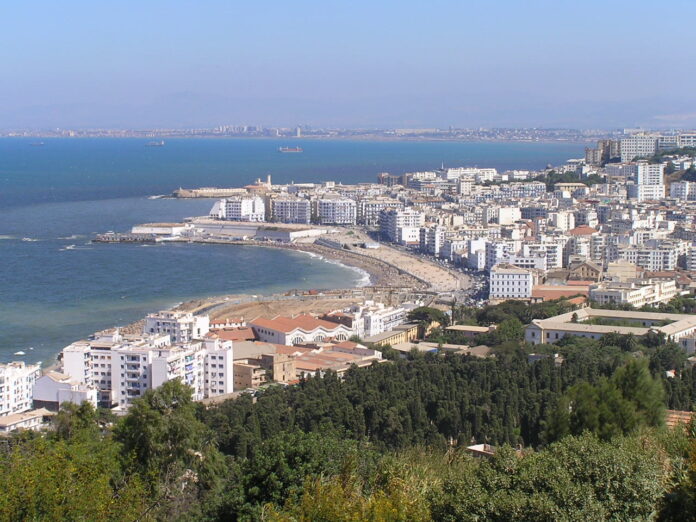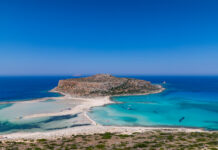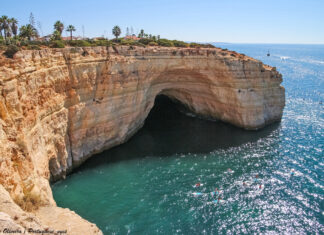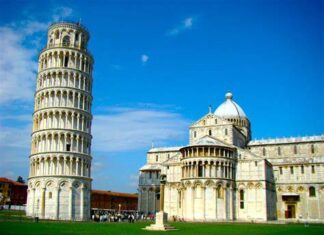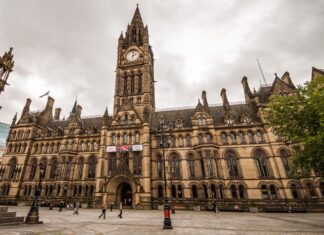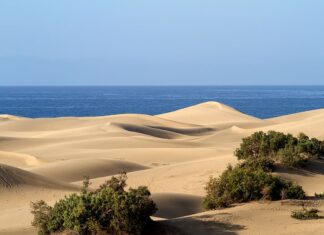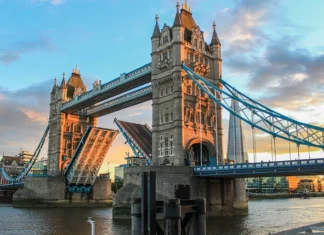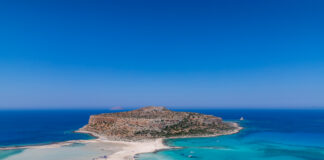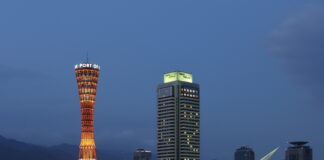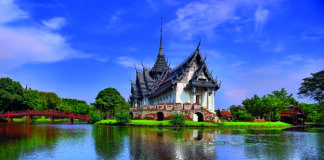Algiers, also known as El Djazaïr, the capital city of Algeria, offers a rich culinary experience with its unique flavors and diverse dishes. Algerian cuisine is influenced by Mediterranean, Arab, Berber, and French culinary traditions. Here are some must-try foods and culinary experiences in Algiers:
- Couscous: Couscous is a staple dish in Algerian cuisine. It consists of tiny grains of semolina steamed and served with a flavorful stew made with meat (such as lamb or chicken), vegetables, and aromatic spices. Couscous is often regarded as the national dish of Algeria and is a must-try for visitors.
- Brik: Brik is a popular street food in Algiers. It is a deep-fried pastry with various ingredients like egg, tuna, parsley, and spices. The crispy texture and delicious filling make it a favorite snack among locals and tourists.
- Chakhchoukha: Chakhchoukha is a traditional Algerian dish made from shredded pieces of semolina bread, cooked in a flavorful tomato-based sauce, and garnished with vegetables, spices, and meat. It is a hearty and aromatic dish that reflects the country's culinary heritage.
- Merguez: Merguez is a spicy North African sausage made from a blend of lamb or beef and various spices, including paprika, cumin, and garlic. It is often grilled and served with bread or added to stews and couscous dishes, adding flavor and heat.
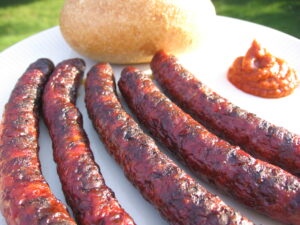
- Makroud: Makroud is a sweet pastry made from semolina dough stuffed with dates or a date-paste filling. It is shaped into diamond or oval shapes, fried or baked, and then coated with honey or syrup. Makroud is a popular dessert during festive occasions and special celebrations.
Culture in Algiers: Unveiling Algerian Heritage
Algiers is a city steeped in history, culture, and traditions. From its ancient landmarks to its vibrant arts scene, here are some highlights of Algerian culture in Algiers:
- Kasbah of Algiers: The Kasbah of Algiers, recognized as a UNESCO World Heritage site, provides a captivating window into the city's fascinating history and architectural legacy. Explore its narrow streets, visit historical sites, and discover traditional houses adorned with beautiful patterns and colors.
- Museum of Fine Arts: Algiers is a cultural hub showcasing a vast collection of Algerian and international artwork. It houses paintings, sculptures, and decorative arts, providing insights into the country's artistic heritage and contemporary art scene.
- Jardin d'Essai du Hamma: Visit the Jardin d'Essai du Hamma, a botanical garden in Algiers known for its lush greenery, exotic plants, and peaceful atmosphere. It's a perfect spot to relax, stroll, and admire the diverse flora.

- National Museum of Antiquities: The National Museum of Antiquities is a treasure trove of ancient artifacts and archaeological finds that span Algeria's history. Discover exhibits showcasing Roman mosaics, Phoenician artifacts, and ancient Berber treasures.
- Algerian Traditional Music: Experience the rich sounds of Algerian traditional music. From the rhythmic beats of chaabi to the hypnotic melodies of raï, Algerian music reflects the country's diverse cultural heritage and is often performed in local venues and festivals.
Travel Tips for Algiers: Making the Most of Your Visit
To make your visit to Algiers smooth and enjoyable, here are some helpful travel tips to keep in mind:
- Safety Considerations: Before your trip, check the latest travel advisories and stay informed about the current situation in Algiers. Follow any safety guidelines or recommendations issued by your government or relevant authorities.
- Respect Local Customs: Familiarize yourself with the local customs and traditions in Algiers. When visiting Algiers, it is essential to dress modestly, particularly when exploring religious sites or public areas. Respect local customs and traditions by adhering to appropriate attire and being mindful of local practices.
- Currency and Banking: The official currency in Algeria is the Algerian Dinar (DZD). It's recommended to exchange currency at official exchange offices or banks. As credit card acceptance may be limited in Algiers, carrying sufficient cash to meet your needs during your visit is advisable.
- Transportation: Algiers has a well-connected transportation system, including buses, taxis, and a metro system. Buses and taxis are convenient for getting around the city, while the metro is a fast and efficient way to travel long distances.
Interesting Facts about Algiers
Here are some intriguing facts about Algiers that add to its allure:
- Algiers is known as "El Djazaïr" in Arabic, which means "The Islands." It is believed to be named after a cluster of islands off its coast.
- The Casbah of Algiers, a UNESCO World Heritage site, is one of the oldest neighborhoods in the city, dating back to the 17th century. Its maze-like streets and historic buildings glimpse Algiers' rich past.
- The city has a vibrant arts and literature scene. Many famous Algerian writers, such as Albert Camus and Kateb Yacine, have hailed from Algiers, contributing significantly to the world of literature.
- Algiers is home to the largest mosque in Africa, the Great Mosque of Algiers (Djamaa el Djazaïr). With its impressive architecture and minaret, it is a prominent landmark in the city.
- The Algerian capital has a captivating blend of architectural styles, ranging from Moorish and Ottoman influences to French colonial architecture, reflecting its diverse history and cultural heritage.
Top Places to Visit in Algiers
- Casbah of Algiers: Explore the historic Casbah of Algiers, with its narrow streets, ancient buildings, and stunning city views. Discover its traditional houses, mosques, and vibrant markets.
- Notre-Dame d'Afrique: Admire the beauty of Notre-Dame d'Afrique, a Roman Catholic basilica on a hilltop overlooking the city. It offers panoramic views of Algiers and the Mediterranean Sea.
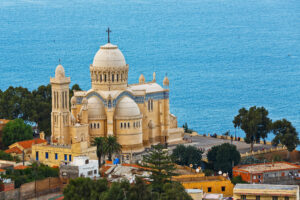
- Bardo Museum: Explore the Museum, known for its historical artifacts, including Roman and Islamic art, ancient mosaics, and archaeological treasures.
- Algiers Waterfront: Take a leisurely walk along the Algiers Waterfront, known as La Corniche, and enjoy the scenic views of the Mediterranean Sea. The waterfront promenade is lined with cafes, restaurants, and gardens.
Algiers offers a captivating blend of history, culture, and culinary delights. From exploring ancient landmarks to savoring traditional Algerian dishes, the city offers much for travelers seeking an enriching and memorable experience.

